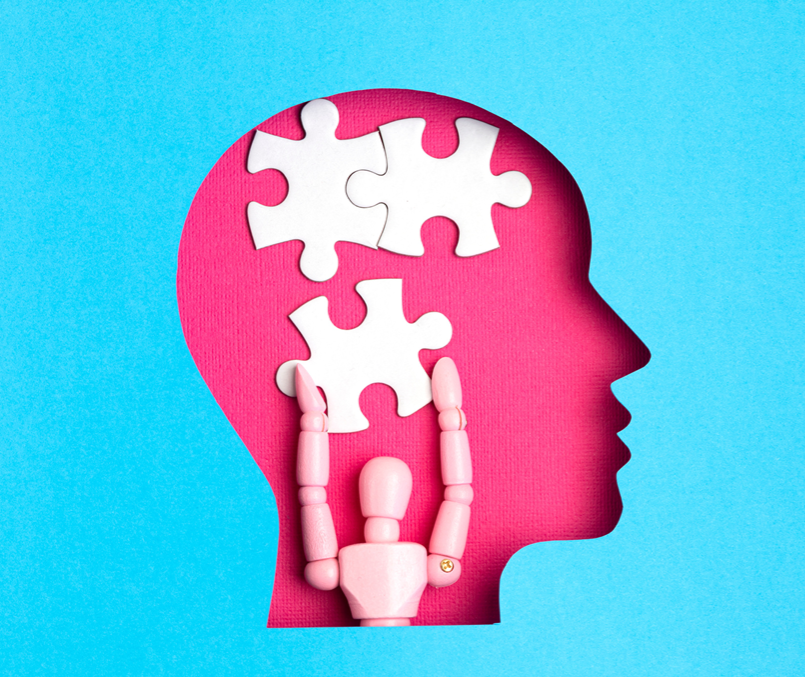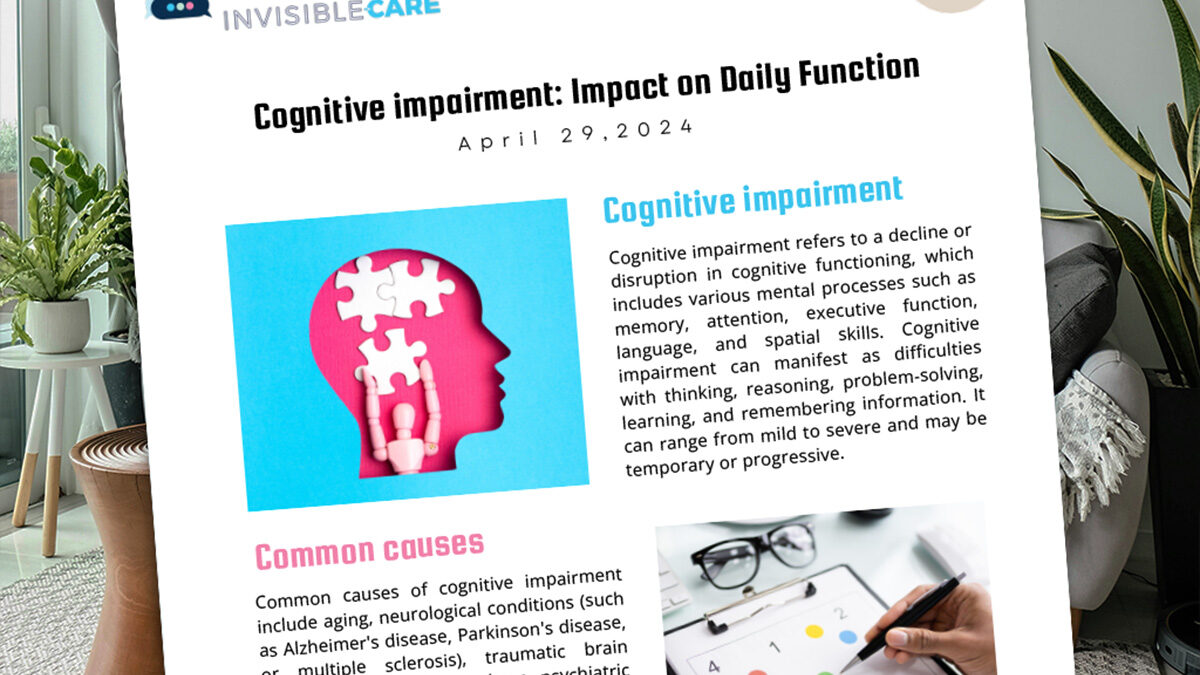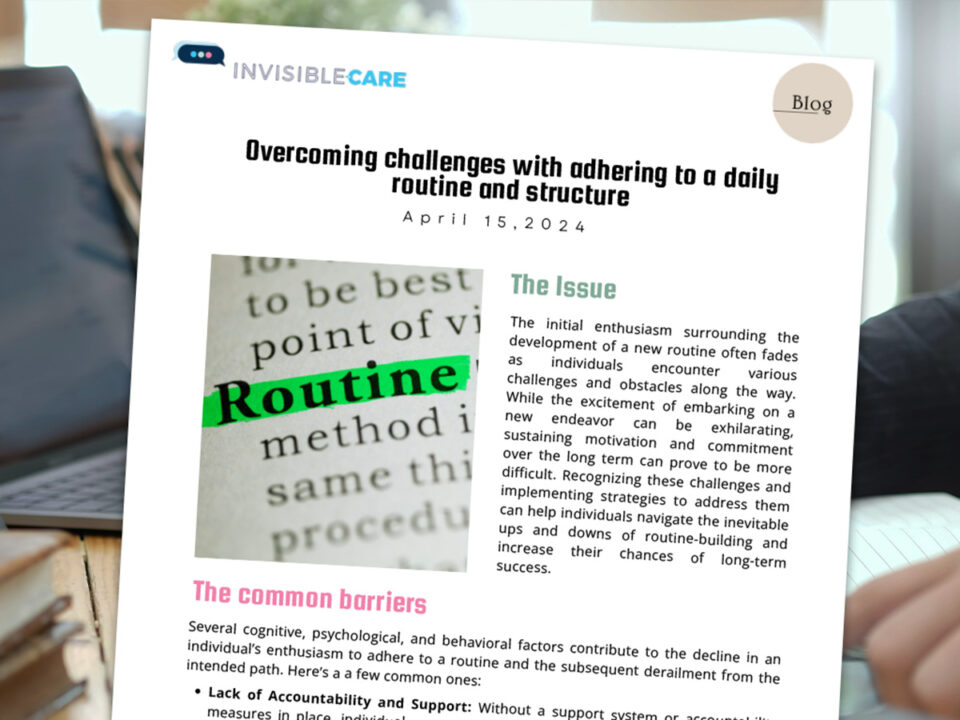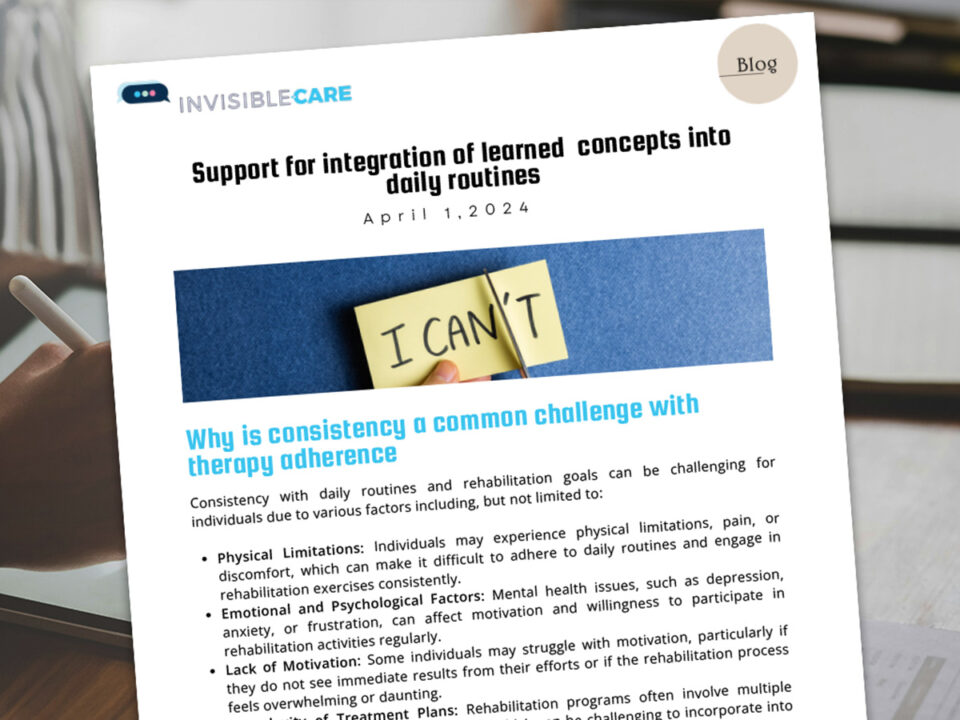
Overcoming challenges with adhering to a daily routine and structure
April 15, 2024
Psycho-emotional and behavioral impairment: Impact on Daily Function
May 13, 2024
Cognitive impairment
Cognitive impairment refers to a decline or disruption in cognitive functioning, which includes various mental processes such as memory, attention, executive function, language, and spatial skills. Cognitive impairment can manifest as difficulties with thinking, reasoning, problem-solving, learning, and remembering information. It can range from mild to severe and may be temporary or progressive.
Common causes
Common causes of cognitive impairment include aging, neurological conditions (such as Alzheimer’s disease, Parkinson’s disease, or multiple sclerosis), traumatic brain injury, stroke, substance abuse, psychiatric disorders, infections, and metabolic disorders. Symptoms of cognitive impairment can vary depending on the underlying cause and severity but may include forgetfulness, confusion, disorientation, difficulty concentrating, language problems, impaired judgment, and changes in behavior or mood.

Management
Treatment and management strategies for cognitive impairment depend on the underlying cause and may include medications, cognitive rehabilitation, therapy, lifestyle modifications, and support services to help individuals cope with cognitive changes and maintain their quality of life.

Impact on ADLs and IADLs
Cognitive impairments can significantly impact an individual’s ability to complete both basic and instrumental activities of daily living (ADLs and IADLs). Let’s look at a few:
Basic Activities of Daily Living (ADLs):
- Personal Hygiene: Cognitive impairments can affect an individual’s ability to perform tasks such as bathing, grooming, and dressing independently. Difficulty with sequencing, problem-solving, and memory recall may make it challenging to follow the necessary steps in these activities.
- Mobility: Cognitive impairments can impair spatial awareness, coordination, and balance, making it difficult for individuals to move safely and independently. Tasks such as transferring from bed to chair or walking may require assistance or modifications to ensure safety.
- Continence: Cognitive impairments may affect an individual’s ability to recognize and respond to bodily cues related to bladder and bowel control. Difficulty with planning, inhibition, and attention may contribute to accidents or difficulties in managing continence.
Instrumental Activities of Daily Living (IADLs):
- Household Management: Cognitive impairments can impact an individual’s ability to plan, organize, and execute tasks related to household management, such as meal preparation, cleaning, and managing finances. Difficulties with problem solving, decision-making, and time management may result in disorganization and inefficiency.
- Medication Management: Cognitive impairments may affect an individual’s ability to manage their medication regimen effectively. Difficulty with memory, attention, and comprehension can lead to errors in medication scheduling, dosage administration, and medication adherence.
- Communication and Transportation: Cognitive impairments can hinder an individual’s ability to communicate effectively and navigate their environment. Challenges with language, memory, and spatial orientation may impact the ability to use transportation services, follow directions, or communicate needs to others.

Summary
In general, cognitive impairments can manifest in various ways, including deficits in memory, attention, executive function, processing speed, and problem-solving skills. These deficits can interfere with the ability to initiate, plan, sequence, and complete tasks required for independent living. As a result, individuals with cognitive impairments may require support, accommodations, or assistive devices to compensate for these challenges and maintain their functional independence as much as possible.





